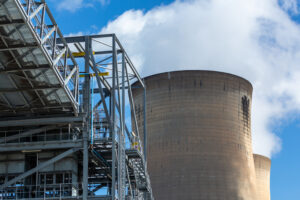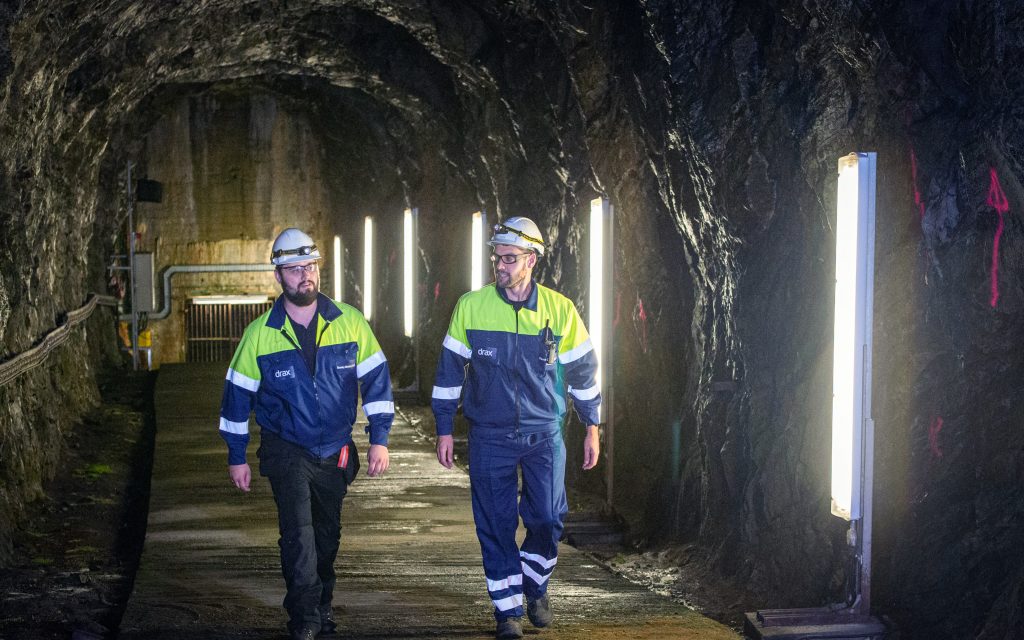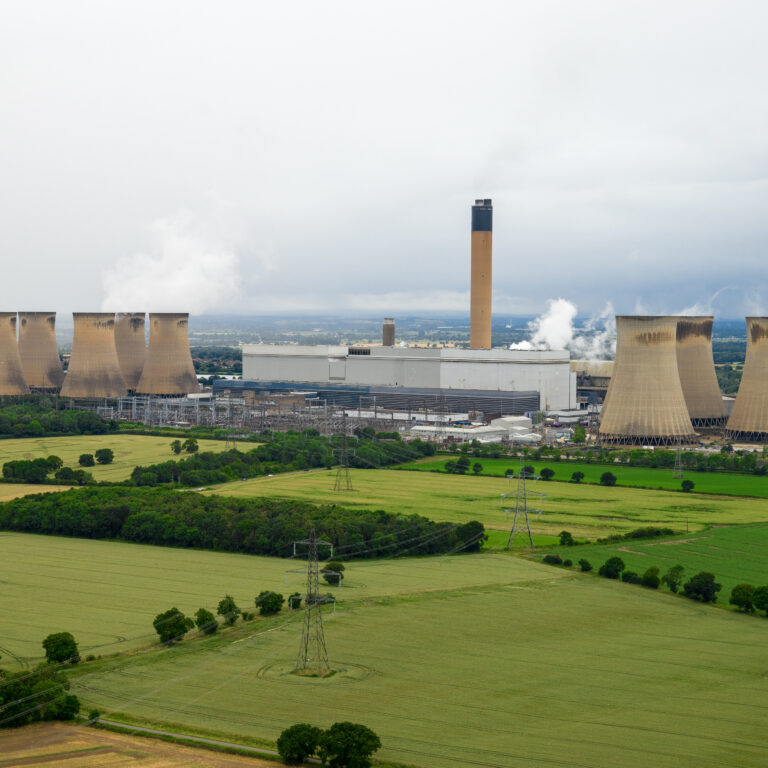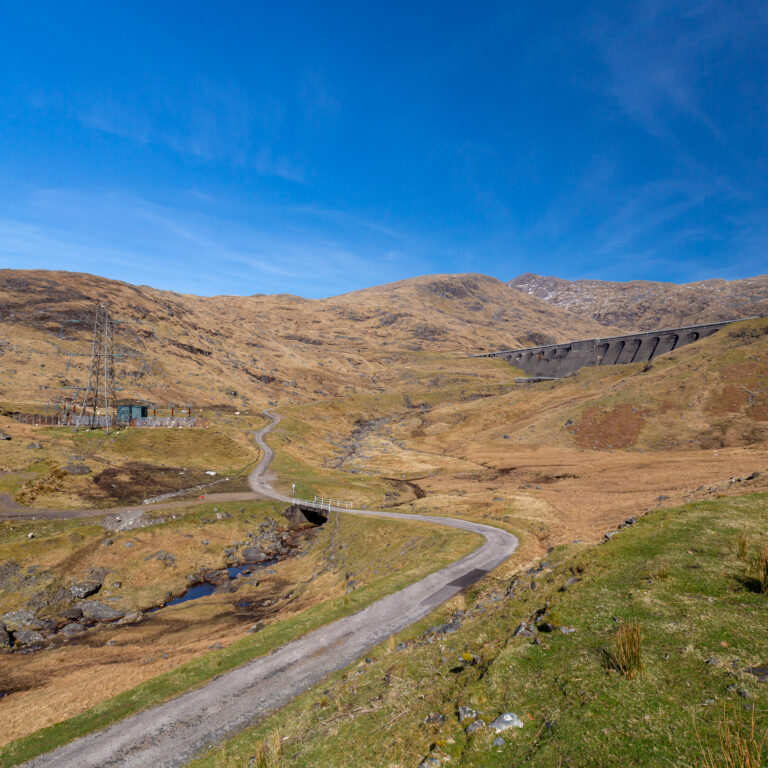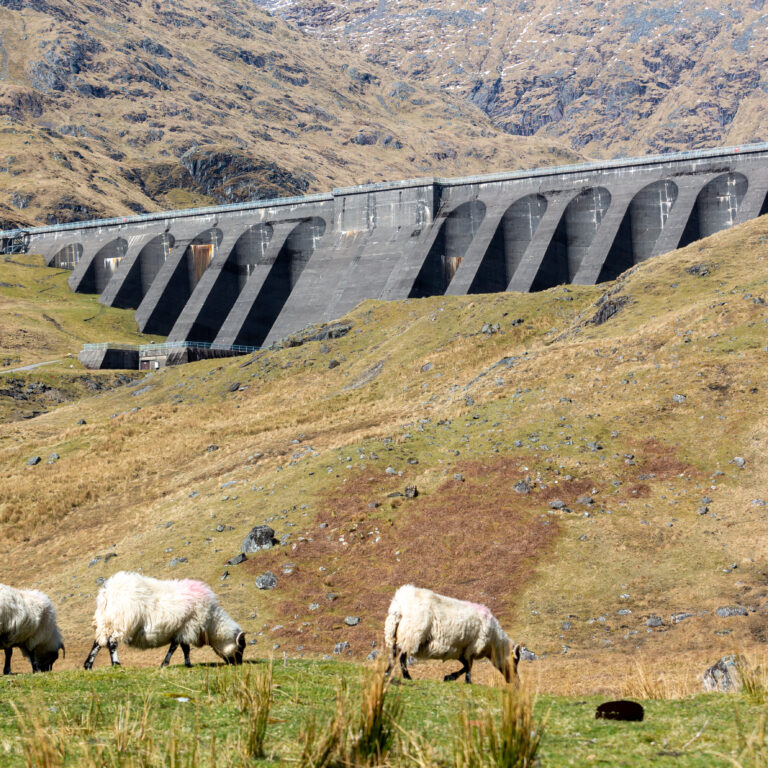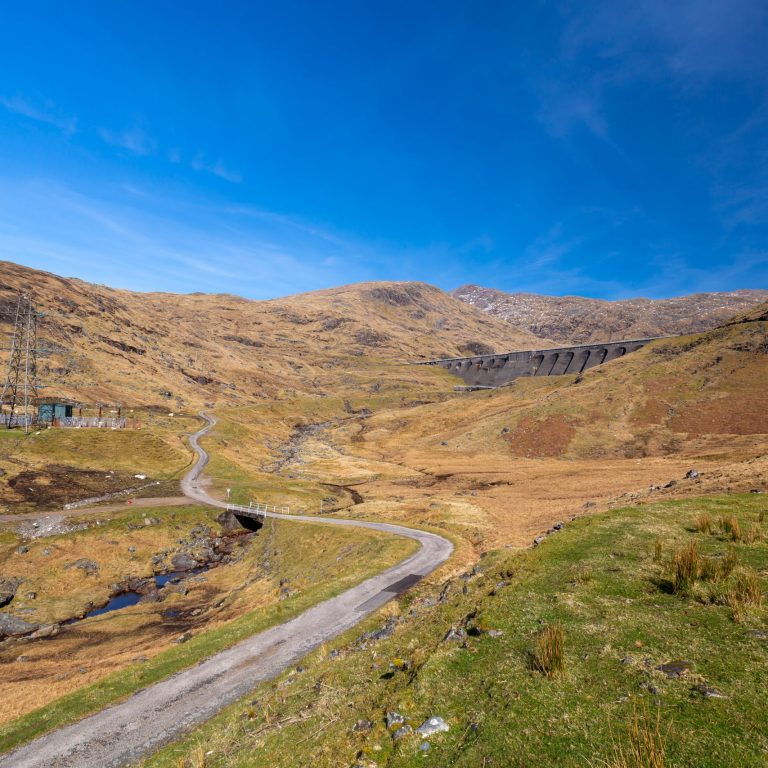-
New report shows Drax generated more than £200m for the Scottish economy, helping local businesses and supporting skilled jobs in rural areas.
-
Drax owns and operates nine hydro power stations in Scotland, including the iconic ‘Hollow Mountain’ Cruachan pumped storage hydro power station in Argyll.
Renewable energy company Drax Group contributed £211 million towards the Scottish economy and supported 1,200 jobs across the country, according to a new report.
The independent analysis by Oxford Economics measured the economic impact of Drax’s UK operations, which includes the iconic underground ‘Hollow Mountain’ Cruachan pumped storage hydro power station in Argyll.

Download – Cruachan Dam
Cruachan acts like a giant battery with its reversible turbines able to both pump water to store excess energy and generate power when the country needs it most. This process enables the plant to stop excess renewable power from wind farms going to waste, and Drax is progressing plans to expand Cruachan to help the country decarbonise faster.
Will Gardiner, Drax Group CEO, said:
“Drax’s renewable power operations and sophisticated supply chains are helping level up the UK economy by supporting jobs, skills and opportunities – including in Scotland.
“We aim to go further by progressing plans to expand our pumped storage hydro capacity at Cruachan – this will help the country to decarbonise faster and to build back better, delivering a post-Covid, green economic recovery using vital technologies needed to address the climate crisis.”
Jobs supported by Drax’s activities across the UK covered a wide range of sectors including high-skilled manufacturing of industrial components, engineering and technical machinery, IT, professional business services and transporting goods.
James Bedford, Economist at Oxford Economics, said:
“Drax Group makes an important economic contribution to the UK. Its activities generated £2.2 billion in GDP in 2019, and sustained thousands of jobs across the nation.
“The positive impact from Drax’s operations aren’t just confined to the boundaries of its power stations or customer contact centres, it is spread across the country benefiting communities throughout the UK.”
ENDS
Media contacts:
Ali Lewis
Head of Media and PR
E: [email protected]
T: 07712 670888
Aidan Kerr
Media Manager (Generation)
E: [email protected]
T: 07849090368
Editor’s Notes
- You can access a copy of the report by going to: https://www.draximpact.co.uk/
- Researchers at Oxford Economics used three measures to calculate Drax’s GDP contribution: the economic activity associated with the day-to-day running of the business; the activity created by the purchase of goods and services from its suppliers; and the wages the company’s employees and suppliers’ employees spend in their local area.
- The report’s findings are taken from analysis of the latest available data, from 2019 – just after Drax Group’s acquisition of a portfolio of generation assets, including hydro and gas power stations.
Key findings from the Oxford Economics report:
- Drax Group contributed £2.2 billion towards UK GDP in 2019 and supported over 19,000 jobs across the country.
- 4,200 jobs supported in Yorkshire and the Humber.
- 1,200 jobs supported in Scotland and £211 million generated towards its economy, home to Drax’s hydro operations including the iconic ‘Hollow Mountain’ Cruachan pumped storage hydro power station.
- £392 million generated and 2,900 jobs supported in the East of England, where one of Drax Group’s B2B power supply businesses, Haven Power, is based.
- 2,700 jobs supported and £289 million generated in the East Midlands, home to Opus Energy – Drax’s other B2B customer business, which supplies energy to SMEs.
- Drax commissioned Vivid Economics to examine the socio-economic benefits of developing bioenergy with carbon capture and storage BECCS alongside other cutting-edge green technologies in the Humber region. You can read the full report here.
- Drax recently announced it was kickstarting the planning process to develop BECCS. Work could get underway at Drax as soon as 2024, creating tens of thousands of jobs. By 2027 Drax’s first BECCS unit could be operational, delivering the UK’s largest carbon capture project and permanently removing millions of tonnes of carbon dioxide from the atmosphere each year.
About Drax
Drax Group’s purpose is to enable a zero carbon, lower cost energy future and in 2019 announced a world-leading ambition to be carbon negative by 2030, using Bioenergy with Carbon Capture and Storage (BECCS) technology.
Its 2,900-strong employees operate across three principal areas of activity – electricity generation, electricity sales to business customers and compressed wood pellet production.
Power generation:
Drax owns and operates a portfolio of flexible, low carbon and renewable electricity generation assets across Britain. The assets include the UK’s largest power station, based at Selby, North Yorkshire, which supplies five percent of the country’s electricity needs.
Having converted two thirds of Drax Power Station to use sustainable biomass instead of coal it has become the UK’s biggest renewable power generator and the largest decarbonisation project in Europe. It is also where Drax is piloting the groundbreaking negative emissions technology BECCS within its CCUS (Carbon Capture Utilisation and Storage) Incubation Area.
Its pumped storage, hydro and energy from waste assets in Scotland include Cruachan Power Station – a flexible pumped storage facility within the hollowed-out mountain Ben Cruachan.
Customers:
Through its two B2B energy supply brands, Haven Power and Opus Energy, Drax supplies energy to 250,000 businesses across England, Scotland and Wales.
Pellet production:
Drax owns and operates three pellet mills in the US South which manufacture compressed wood pellets (biomass) produced from sustainably managed working forests. These pellet mills supply around 20% of the biomass used by Drax Power Station in North Yorkshire to generate flexible, renewable power for the UK’s homes and businesses.
For more information visit www.drax.com





